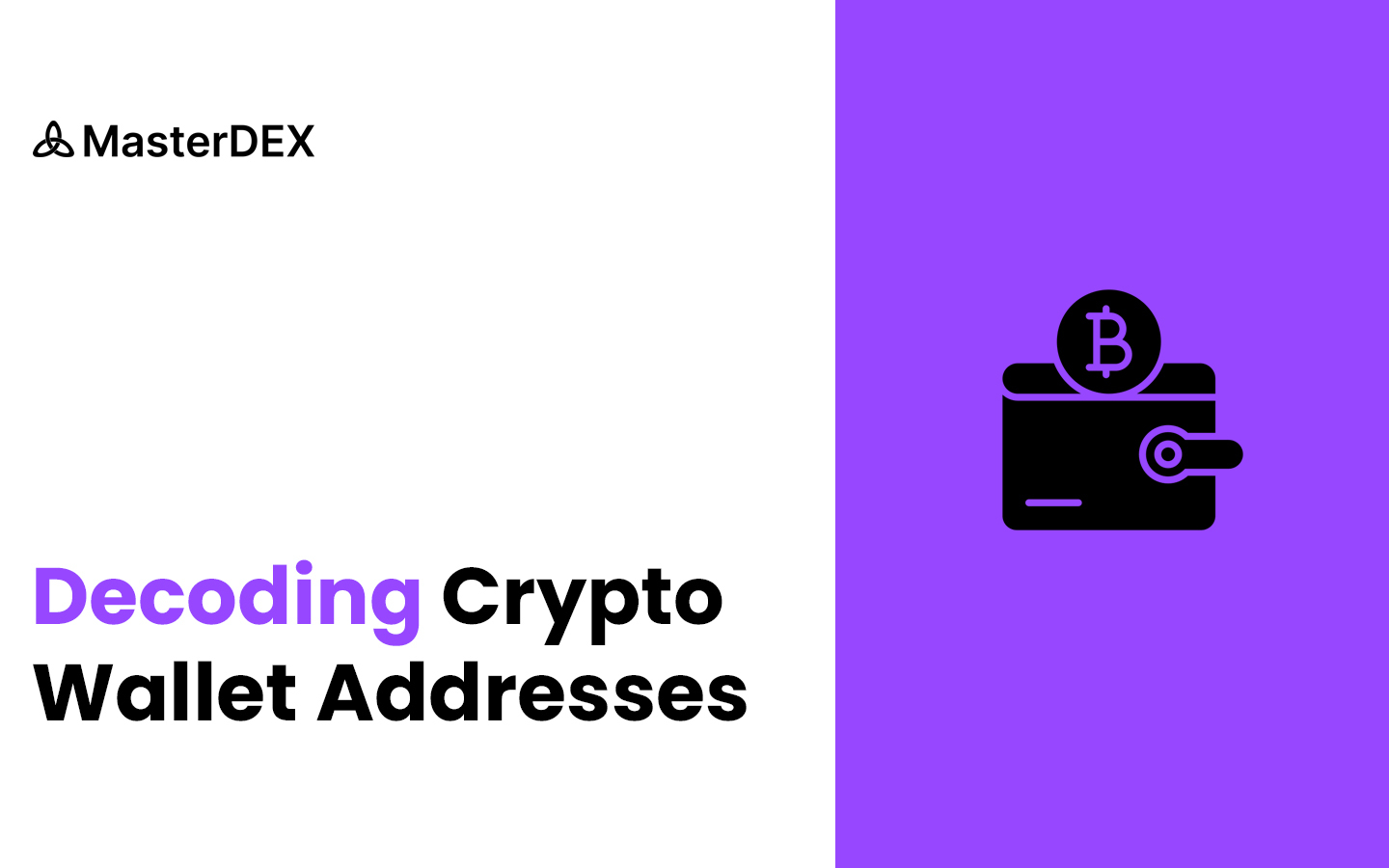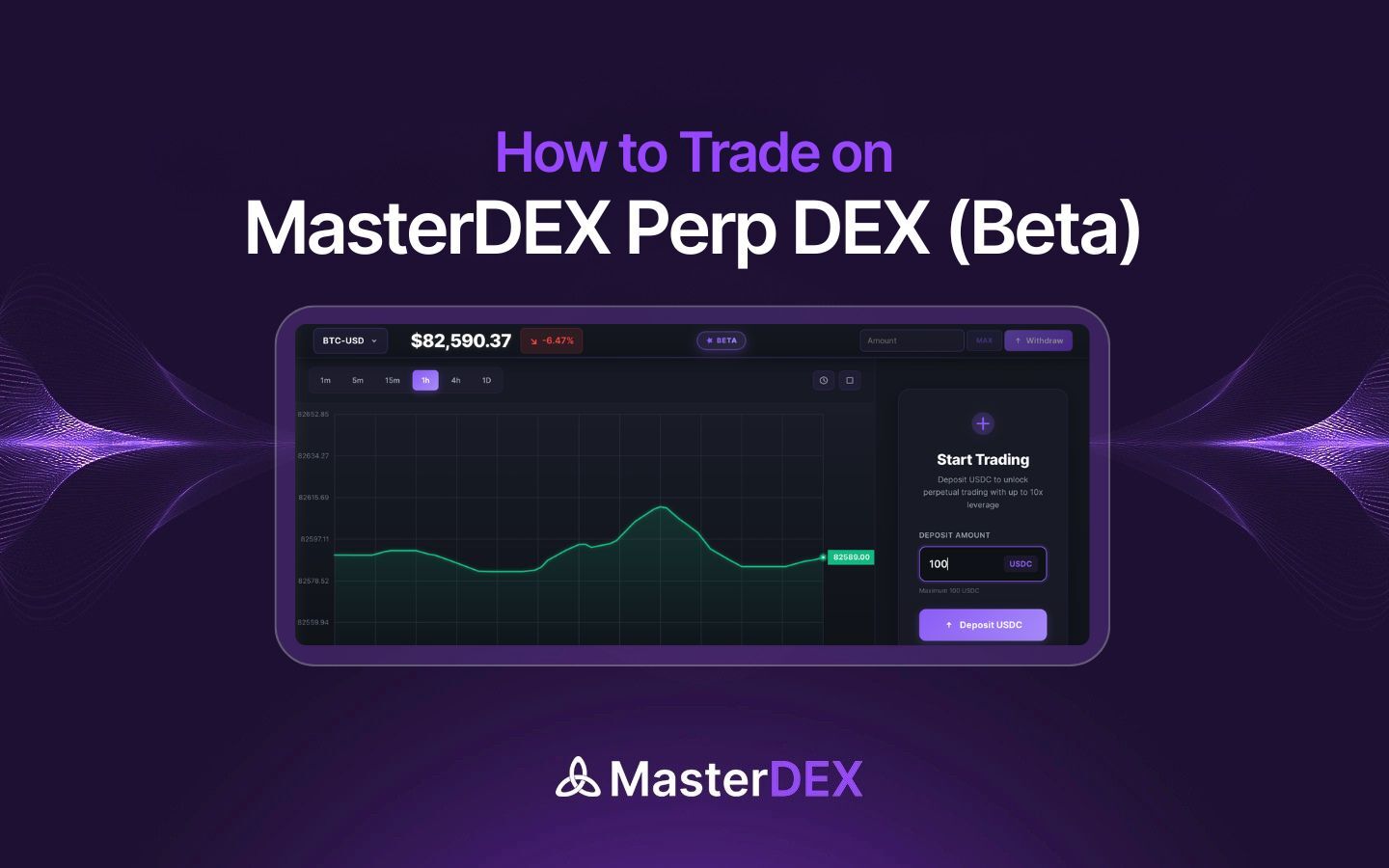Table of Contents:
ToggleWhat Is a Crypto Wallet Address?
A crypto wallet address is a unique alphanumeric string that serves as a destination for sending and receiving cryptocurrencies. Similar to a bank account number, it acts as an identifier that enables transactions while keeping users’ identities pseudonymous. Unlike traditional bank accounts, wallet addresses are not tied to personal details, enhancing privacy and security in the decentralized ecosystem.
Each cryptocurrency operates on its own blockchain and has a distinct address format. For instance, a Bitcoin wallet address follows a different structure than an Ethereum wallet address or a Litecoin wallet address. These addresses are crucial for securely managing digital assets.
New to crypto and DeFi space? Check out this deep dive blog and gain in-depth knowledge!
How Does a Crypto Wallet Address Work?
A crypto wallet address plays a central role in blockchain transactions. Here’s how it functions:
1. Generating a Crypto Wallet Address
When you create a cryptocurrency wallet, a unique wallet address is generated for you. This address is linked to a public and private key pair, ensuring secure transactions. Most wallet applications allow users to copy and share their wallet addresses easily for receiving crypto.
2. Sending Cryptocurrency
To transfer cryptocurrency, you need the recipient’s wallet address. All you have to do is to enter this address into your wallet software, specify the amount, and confirm the transaction. The request is then broadcast to the blockchain for validation.
3. Transaction Verification
Blockchain networks verify transactions using nodes (computers that validate data). Once confirmed, the transaction is recorded on the blockchain, making it immutable and tamper-proof.
4. Receiving Cryptocurrency
To receive digital assets, simply share your public wallet address with the sender. The transaction will be processed and reflected in your wallet after blockchain confirmation.
Types of Crypto Wallet Addresses
Just as there are multiple types of crypto wallets, there are also various types of crypto wallet addresses, each with its unique functions. Below are the four most common types of Bitcoin wallet addresses:
1. SegWit (Bech32) Address
SegWit (Segregated Witness) addresses, also known as Bech32 addresses, are widely used for Bitcoin transactions due to their ability to optimize block space and reduce transaction fees. They start with bc1, making them easily recognizable.
Example: bc1d42UNb54eBiGm0qEM0h6r2h8n532to9jtp186ns
2. Legacy (P2PKH) Address
Legacy or Pay-to-Public-Key-Hash (P2PKH) addresses were the first Bitcoin addresses introduced when Bitcoin launched. They are still in use but are less efficient due to higher transaction costs. These addresses always start with 1.
Example: 17g24tOg1URxOylEyt9v3Nps5T8CKe2Gyd
3. Compatibility (P2SH) Address
Pay-to-Script-Hash (P2SH) addresses are more versatile, enabling advanced features like multi-signature transactions. They begin with 3, making them distinct from other Bitcoin addresses.
Example: 3T74h2ClRP93NOwAviersyiWkqpHcLYBs
4. Taproot (BC1P) Address
Taproot (BC1P) addresses enhance privacy and introduce smart contract capabilities to Bitcoin. Their transaction sizes are more efficient than legacy addresses, though slightly larger than Bech32 addresses. They always start with bc1p.
Example: bc1prwgcpptoxrpfl5go81wpd5qlsig5yt4g7urb45e
5. Ethereum (ETH) Wallet Addresses
Ethereum addresses always start with 0x and are 42 characters long. These addresses are compatible with all ERC-20 tokens, including stablecoins. Services like Unstoppable Domains can simplify Ethereum addresses by replacing them with human-readable names.
Example: 0x7f533b5fbf6ef86c3b7df76cc27fc67744a9a760
6. Litecoin (LTC) Wallet Addresses
Litecoin addresses begin with either:
- L (Legacy Address)
- M or 3 (P2SH Address)
Example: ltc1qzvcgmntglcuv4smv3lzj6k8szcvsrmvk0phrr9wfq8w493r096ssm2fgsw
7. Bitcoin Cash (BCH) Wallet Addresses
Bitcoin Cash (BCH) addresses initially resembled Bitcoin addresses, often starting with 3. However, newer formats now start with q or p to distinguish them.
Example: qrvax3jgtwqssnkpctlqdl0rq7rjn0l0hgny8pt0hp
8. Dogecoin (DOGE) Wallet Addresses
Dogecoin addresses typically begin with a capital “D”, followed by a mix of numbers and lowercase letters.
Example: D7wbmbjBWG5HPkT6d4gh6SdQPp6z25vcF2
Why Are Crypto Wallet Addresses Important?
A crypto wallet address does more than just facilitate transactions—it ensures security, ownership, and functionality within blockchain networks. Here’s why they matter:
Ownership of Digital Assets
A wallet address is controlled by a private key, which determines ownership. If you don’t hold the private keys, you don’t truly own the assets. Custodial wallets (offered by centralized exchanges) manage private keys on users’ behalf, but non-custodial wallets (self-custody) provide full control.
Secure and Transparent Transactions
Blockchain networks rely on cryptographic verification to process transactions. Wallet addresses ensure tamper-proof and secure transactions, allowing only authorized transfers.
Functionality in Peer-to-Peer Transfers
Whether sending Bitcoin, Ethereum, or altcoins, a valid wallet address is mandatory. Transactions are immutable, meaning incorrect entries could result in loss of funds.
Compatibility Across Networks
Unlike traditional banking, crypto transactions occur within a single decentralized network. Most wallet addresses are standardized within their respective blockchains, ensuring seamless transfers.
Best Practices for Securing Your Crypto Wallet Address
Keeping your wallet address secure is essential to protect your digital assets. Follow these safety tips:
- Double-check addresses before sending funds: Blockchain transactions are irreversible. Always verify the recipient’s address.
- Use reputable wallets: Choose well-known and secure crypto wallets with strong security features.
- Backup your private keys: Store private keys or recovery phrases offline in a secure location. Never save them in cloud storage.
- Enable Two-Factor Authentication (2FA): If your wallet supports 2FA, activate it to add an extra layer of security.
- Keep software updated: Regularly update your wallet application to safeguard against vulnerabilities.
Looking for a decentralized exchange to start your crypto journey? You are just a click away! Check out MasterDEX deep dive blog now!
Final Thoughts
A crypto wallet address is an essential tool for managing and securing digital assets in the decentralized world. Whether you’re sending, receiving, or storing cryptocurrency, using a secure and reliable wallet is crucial.
For enhanced security, hardware wallets like Ledger provide robust protection by keeping private keys offline. With self-custody, you retain full control over your assets—because in crypto, not your keys, not your coins.
Choose the right wallet, stay secure, and navigate the crypto space with confidence!



